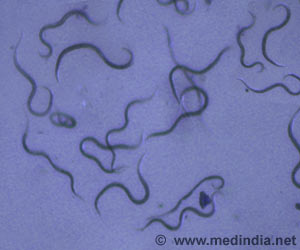A recent research has revealed the smartness of crows.

These relational matching trials were arranged in such a way that neither test pairs precisely matched the sample pair, thereby eliminating control by physical identity. For example, the crows might have to choose two same-sized circles rather than two different-sized circles when the sample card displayed two same-sized squares.
What surprised the researchers was not only that the crows could correctly perform the relational matches, but that they did so spontaneously - without explicit training.
"That is the crux of the discovery," Wasserman says. "Honestly, if it was only by brute force that the crows showed this learning, then it would have been an impressive result. But this feat was spontaneous."
Still the researchers acknowledge that the crows' relational matching behavior did not come without some background knowledge.
"Indeed, we believe that their earlier IMTS (identity matching-to-sample) training is likely to have enabled them to grasp a broadly applicable concept of sameness that could apply to novel two-item samples and test stimuli involving only relational sameness," the researchers wrote. "Just how that remarkable transfer is accomplished represents an intriguing matter for future study."
Advertisement
Source-Eurekalert









